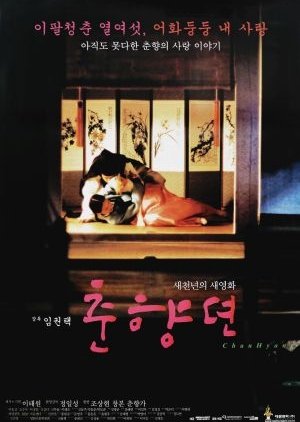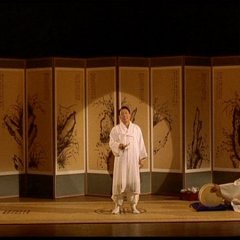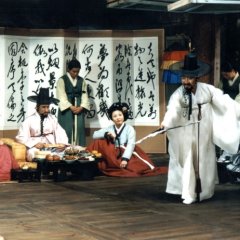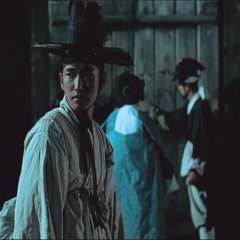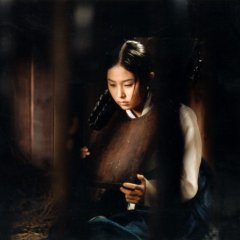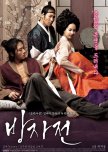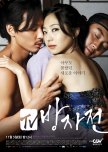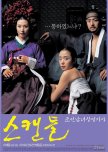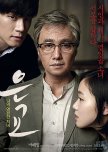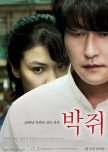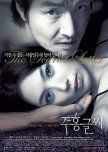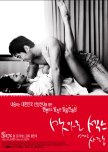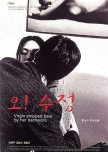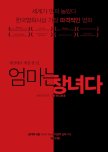No final do século XVII, na Coreia, Mong Ryong, um jovem nobre, se apaixona perdidamente por Chun Hyang, uma bela e culta jovem, porém, filha de uma gisaeng (espécie de cortesã parecida com as gueixas). Apesar das diferenças, resolvem viver o amor que nasce entre eles, e a protagonizar o que, para a rígida sociedade da época, era impossível. O destino também resolve atrapalhar o romance, fazendo com que Mong Ryong tenha de acompanhar seu pai, que é transferido para a capital, e assim deixar sua amada. Desesperado, Mong Ryong implora à Chun Hyang que o espere, jurando que ela seria sempre sua esposa, ainda que não oficialmente. A vida de Chun Hyang se complica quando o novo governador resolve incluí-la na lista de cortesãs que deverá servi-lo, o que a fará viver momentos seguidos por trágicas consequências. (Fonte: Cinema 10; editado por MyDramaList) Editar Tradução
- Português (Brasil)
- English
- magyar / magyar nyelv
- dansk
- Título original: 춘향뎐
- Também conhecido como: Chun Hyang Dyeon ,
- Roteirista: Kim Myung Gon
- Diretor: Im Kwon Taek
- Gêneros: Histórico, Romance, Drama
Onde assistir Chunhyang - Amor Proibido
Elenco e Créditos
- Jo Seung WooLee Mong RyongPapel Principal
- Lee Hyo JungSeong Chun HyangPapel Principal
- Kim Sung NyeoWol MaePapel Secundário
- Lee Hye EunHyang DanPapel Secundário
- Lee Jung HeonByun Hak DoPapel Secundário
- Kim Hak YongBang JaPapel Secundário
Resenhas
Much of the narrative is sung. but do not be put off by this presentation. It will grow on you. The ending is superb and worth the wait.

The story has been dramatized many times on film. Besides this version, released in 2000 by director Im Kwon-taek, there was also a retelling of the story in the 2008 film, The Servant. Another version from 1968 exists. It stars one of South Korea's most well-known veteran actors, Shin Seong-il.
In the Story of Chunhyang as depicted by this film, the young nobleman, a scholar, takes an interest in the beautiful daughter of a courtesan at first sight. As custom dictates that a courtesan's daughter is also a courtesan the young master orders his servant to fetch the girl, thinking she'll be an easy lay. To his amazement she rebuffs his advances & reveals she’s no light skirt, but a scholar herself, gifted in art and poetry. This makes him fall for her even more and so begins their story.
And a beautiful, simple, upbeat story of love it was. I enjoyed every minute of it. The characters featured in this film are younger than those featured in The Servant (2008) & Chunhyang (1968). And ahh, the wonders of young love, new love. I never get tired of it. Never.
The film turned out to be so unlike what I expected. I had no prior knowledge of the folk tale so I thought this was going to be tragic & indeed there is this Romeo & Juliet feel to it, but that’s about where the comparison ends.
The acting was reasonably well done considering this was the acting debut of both leads, and the chemistry between these two love birds was sizzling. They made a very cute couple. I could watch them frolic & dilly-dally around all day. Female viewers can look forward to serious eye candy in the form of Cho Seung Woo. Though he's really young in this movie (around 19 I think) the guy is a distraction, perhaps THE most photogenic South Korean actor I've ever come across. You know who's gonna be stalking him from now on... LOL
Strong themes of duty, everlasting love and loyalty make up The Story of Chunhyang, as well as class differences and the role of women in pre-modern Korean society. It was all quite fascinating to watch. I felt like I gained a deeper insight of Korean culture & history.
But more than anything else I'm giving this movie high scores of 10 because this is what I consider a filmmaker's film – where a good balance of both creative & technical excellence was achieved to create something artistic & unique. I don't know if I'd go as far as to say it's a masterpiece, but there's a strong sense of the director's voice here. And I liked that voice. It was captivating. It pulled me in, made me smile, made me wonder what would happen next. The story is told with traditional linear narrative, but with an unconventional twist. I suspect audiences who are not appreciative of movies as an art might find this a bit off-putting simply because it is different & not what they might be used to.
Personally, I think director Im Kwon-taek deserves props for this unexpected, but refreshingly original unveiling of the story. I won't reveal exactly how or what was done, except to say you've probably never seen a movie narrated quite like this in a long time, if ever at all.
The OST is a wonderful mash-up of old Korea sounds that were always beautifully matched with interesting, pleasing to the eye pictures.
I thought it was pretty well done.

